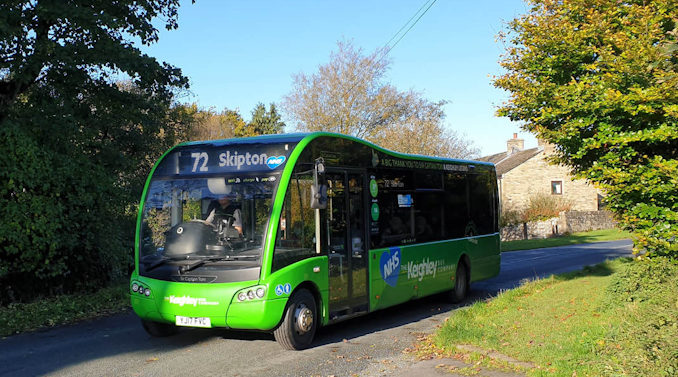
Leaders of a local authority which oversaw one of the UK’s most severe programme of cutbacks in public transport funding during austerity have issued a stark warning to residents – use new services being funded for a year or lose them.
Several members of North Yorkshire Council’s executive issued a direct appeal to residents after hearing bus operators believed new, evening and weekend services would be able to “stand on their own two feet” after an injection of funds to subsidise them for 12 months.
The call follows the authority welcoming a £3.5m government grant, paid for using money the scrapped northern part of the HS2 rail project, to boost bus services in the county, with additional buses being launched on more than 20 routes from Scarborough to the Dales.
As part of an updated bus improvement plan approved at the executive meeting to get the funding signed off, there will also be a £1 single flat-rate fare for teenagers, run separately from the £2 flat rate for all passengers which is available across the whole country.
The plan has been criticised by North Yorkshire opposition leaders, who believe the short-term funding is likely to fail to achieve long-term change.
Around a third of bus services in North Yorkshire have seen timetable reductions or have needed extra financial support since the pandemic, partly due to rising operating costs and difficulties recruiting drivers.
Future funding to boost bus services will go to the mayoral combined authority.
Ahead of being elected as mayor David Skaith said he would develop an integrated public transport system that gave people “viable and alternative means for travel rather than relying on the car”.
He added: “There will be a particular focus on improving people’s abilities to travel for work, education and join up our rural and coastal regions.”
The call from the executive comes two years after the predecessor authority, North Yorkshire County Council, had its bid for a £116m share of the £3bn Bus Back Better fund turned down.
When asked what would happen if an upturn in use of buses did not follow the authority’s plan, highways and transport executive member Councillor Keane Duncan said the council had worked closely with bus operators, using their data and market intelligence, to identify routes the funding would have the maximum impact on.
He said: “We need to make sure these routes are supported and passengers are using the services.”
The council’s climate change boss, Councillor Greg White told the meeting the authority needed more people to use buses if it was to achieve its climate change goals.
He said people needed to “show their commitment to public transport”, adding: “It is use it or lose it. We can’t afford to send empty buses around the county. Ultimately, we are not saving the climate if we run empty buses.”
The authority’s deputy leader, Councillor Gareth Dadd added: “There’s an opportunity for the public to step up to the plate or step on the bus or else there is a strong risk they won’t be there and they will go.”


Be the first to comment